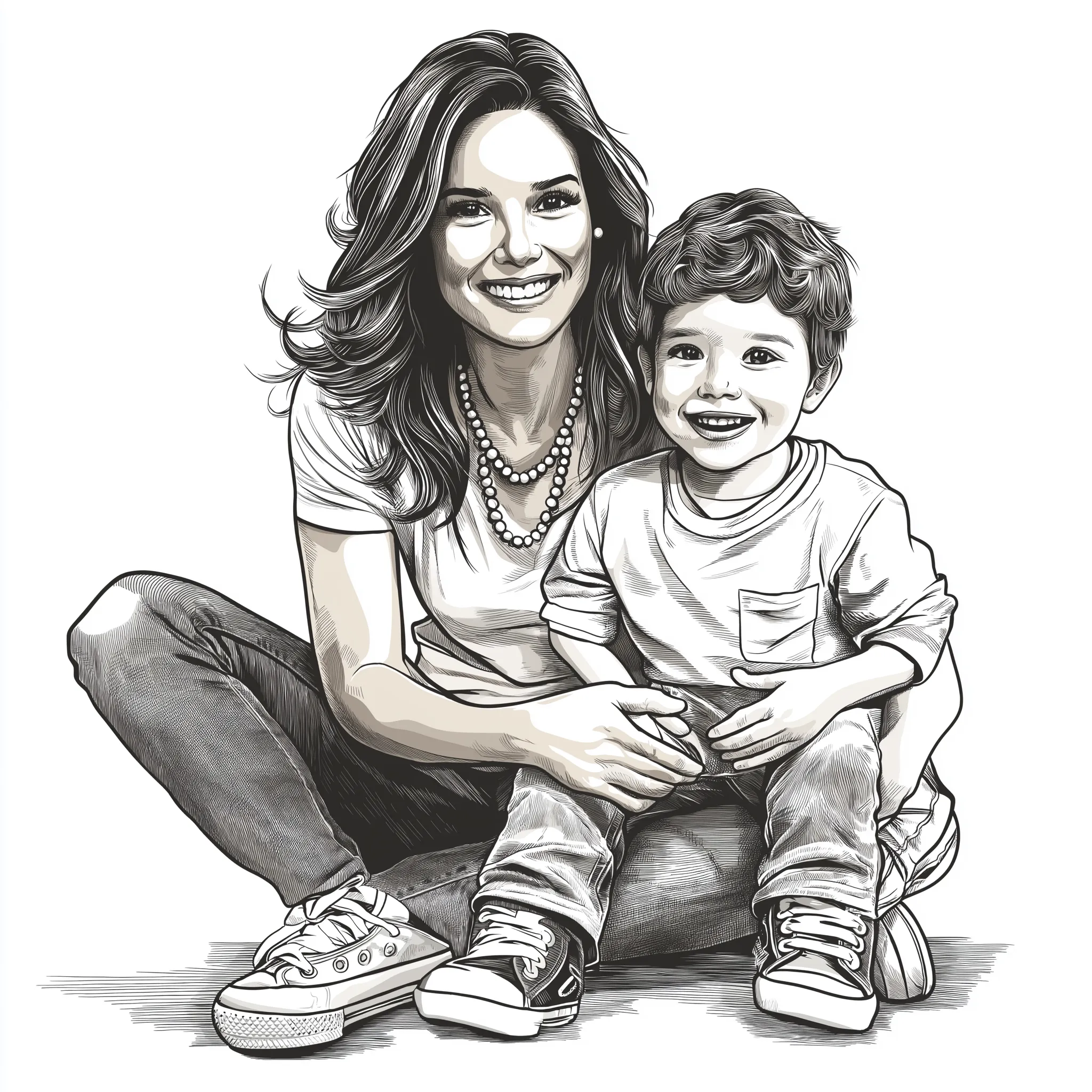The story of Verónica García and her son Guzmán, diagnosed with type 1 diabetes at 3 years, shows the challenges and learning that families face when living with this chronic disease.From an unexpected diagnosis to the need to quickly adapt to a new routine, Verónica shares how she has learned to handle the condition of her child and advocates wholesale awareness and support in the educational and health environment.
It all started in 2019, when Guzmán presented symptoms that his mother confused with gastroenteritis.However, the situation worsened quickly, taking them to the hospital with glucose levels of 427 mg/dl and a serious episode of diabetic ketoacidosis that required admission to UCI.This moment marked a before and after for the family, which had to adapt to a new reality full of insulin, glucometers and daily decisions.
"We had never heard anything about the symptoms of diabetes," says Verónica, claiming the need for more posters and information in health centers to avoid late diagnoses.
In full pandemic, Verónica had to learn on her own many of the essential tasks to handle her son's diabetes, including how to place a catheter, thanks to YouTube videos.Guzmán now uses an insulin pump, which automates much of its treatment, but continues to require manual adjustments and constant supervision.
- The insulin pump facilitates its day to day, adjusting insulin according to the needs of its meals and glucose levels.
- Guzmán, now 8 years old, is aware of his illness and his needs, although his mother highlights the importance of having an empathetic and prepared school environment.
Verónica underlines the need for support in the school environment to guarantee the safety and well -being of Guzmán:
- Teacher empathy: although they are not asked to administer insulin, they are expected to react when the pump warns of hypoglycemia, allowing the child to eat something fast.
- Preparation and continuity: Each course, Veronica must meet with new teachers to explain how to act in case of emergency.
- Communication on activities: events such as excursions or physical education classes require diet and insulin doses, and parents need to be informed in advance.
Verónica supports the creation of the figure of the school nurse, an increasing claim among the families of children with diabetes.
Community support
The Association of Diabetics of the Principality of Asturias (ASDIPAS) has been a fundamental pillar for Verónica and his family.Participating in meetings and camps with other children with diabetes has allowed Guzmán to meet others in their very situation and understand that he is not alone.
"The first time we participate in a meeting, all parents wake up at hearing a sound bomb, thinking that it was our son. You realize that you are not the only one," says Veronica.
Council for other families
For those who are facing a recent diagnosis, Verónica shares a message of resilience and patience:
"You don't need everything in a month. We are all learning day by day. What works today, may not work tomorrow, but with continuous support and learning, you can lead a full life."
Type 1 diabetes is a challenge, but with information, support and adaptation, it is possible to face it with force and optimism.
If you or your family have similar experiences, do not hesitate to share them in the forum.Together we learn better!


